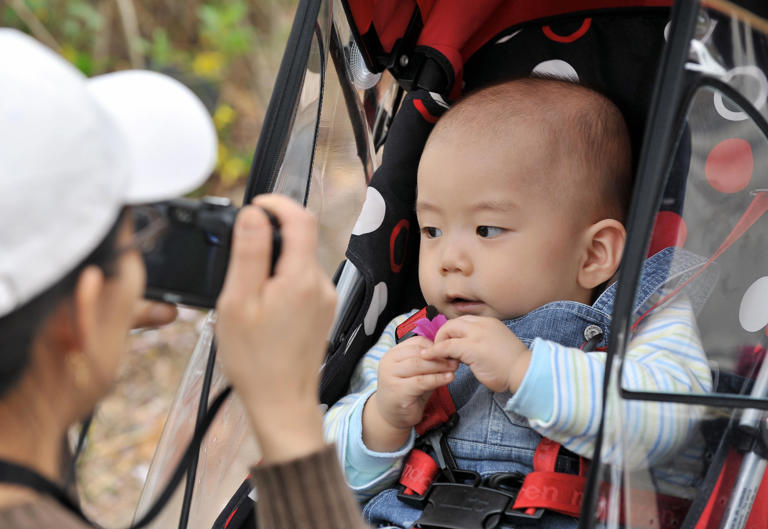Japan and South Korea are facing a severe population crisis, with fertility rates in both countries reaching historic lows.
In 2023, South Korea’s fertility rate dropped to a record low of 0.72 births per woman, down from 0.78 the previous year. Japan’s fertility rate also declined, reaching 1.26 births per woman, well below the replacement rate of 2.1. This marks the eighth consecutive year of decline for Japan.
Demographer Yi Fuxian from the University of Wisconsin-Madison expressed a grim outlook, stating it might be too late to avert a population crisis. Yi attributes Japan’s marginally higher fertility rate compared to South Korea to a stronger emphasis on traditional family values. However, South Korea surpasses Japan in factors negatively correlating with fertility, such as higher education enrollment and urban density. South Korea’s educational enrollment rate stands at 76 percent, significantly higher than Japan’s 61 percent. Additionally, South Korean women, on average, have their first child at 33.6 years, compared to 31 years in Japan.
The urban density in South Korea exacerbates the issue. Approximately half of South Korea’s 51.6 million residents live in the Seoul Metropolitan Area, with a population density of 15,560 people per square kilometer, more than double Tokyo’s density.
Efforts to reverse the trend have seen both countries investing heavily in various policies. South Korea has spent nearly $300 billion on child-rearing incentives, including cash subsidies and childcare services. Japanese Prime Minister Fumio Kishida has pledged to increase national childcare spending, with a plan to allocate $25 billion over three years and a goal to double this amount within a decade.
Local initiatives also aim to address the crisis. The Tokyo Metropolitan Government plans to launch a marriage-focused dating app, requiring participants to prove their single status and readiness for marriage.
Despite these measures, the demographic challenges remain daunting. With over 30 percent of Japan’s population aged 65 and older and 18 percent in South Korea, the aging population and low fertility rates strain their economies and social systems. South Korean President Yoon Suk Yeol has declared the situation a “national emergency,” while Japan’s Chief Cabinet Secretary Yoshimasa Hayashi has called the current period the “last chance” to reverse the trend.



